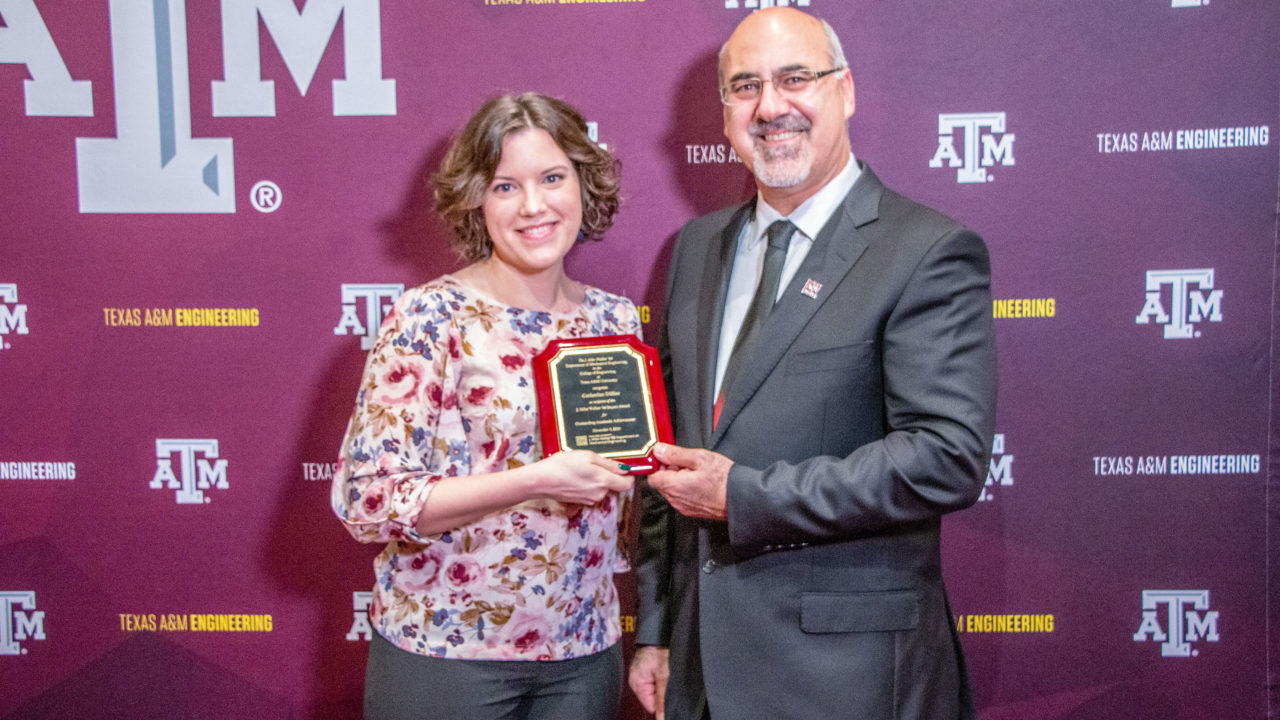Any mention of shampoo and conditioner generally conjures up images of hair washing for most people. But for a young Catherine Dillier, it meant chemical reactions and science experiments.
Dillier recalls her first tour of the Turbomachinery Laboratory’s Energetics Lab affectionately known as the “Rocket Lab.”
“You’re going to let me do this—let me mix and test rocket propellants?” Dillier, then an undergraduate, remembers asking rhetorically. “It was my childhood fantasy come to life.”
Dillier is a mechanical engineering doctoral student and a member of the Petersen Research Group, where Dr. Eric Petersen, Turbomachinery Laboratory Director, Professor and holder of the Nelson-Jackson Chair, is her primary adviser. She was nominated by the Graduate Office of Mechanical Engineering and selected to receive the J. Mike Walker ’66 Impact Award for her academic and innovative excellence and the impact her work has had on the department and field of study. Dillier received a $5,000 financial stipend and plaque during the fall Scholarship/Fellowship banquet in early November.
Dillier’s research focuses on solid composite propellant. She takes novel additives and tailors formulations to meet certain criteria, such as burning rates or burning profiles. She looks at what is causing the burning rates and how the additives are reacting in the propellants. Currently, she is researching high pressure effects.
“No one has done this kind of research since the 60s and 70s,” Dillier said. “I could go on and on about that, because they are so cool.” Sensitive research projects limit how much she can elaborate for the general public, though.
Dillier points to new technology as key for improvements in motor performance through increased rocket motor pressures. Think space shuttle rocket boosters, which are actually solid rocket motors. Propellants are also found in airbags.
Outside of the Turbo Lab, Dillier organizes a graduate student group at St. Mary’s Catholic Church. Each week she leads a small home group for graduate student women.
Dillier has her sights set on graduating in December 2020. She is interested in working for a Department of Defense laboratory and continuing her research in combustion.
“I love what I do,” she said. “Why would I not just continue to do what I love?”
You’re going to let me do this—let me mix and test rocket propellants? It was my childhood fantasy come to life.
Catherine Dillier
Ph.D. student
The Texas A&M Engineering Experiment Station (TEES) Turbomachinery Laboratory makes a vital impact on turbomachinery and related industries through research, education and professional workforce development.

